- From Faith Current: “The Sacred Ordinary: St. Peter’s Church Hall” - May 1, 2023
- A brief (?) hiatus - April 22, 2023
- Something Happened - March 6, 2023
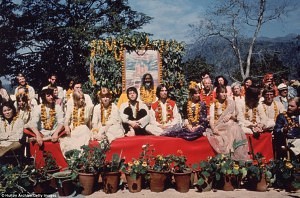
By law, this photo must accompany any article regarding the Beatles in India.
It’s always sorta been open to the public — if you wanted to give a local five rupees and sneak over the wall — but now the Indian government has made the Maharishi’s old compound in Rishikesh a tourist attraction.
In 1968, the Fab Four wrote most of the White Album while staying at the ashram located in the Rajaji national park, besides the river Ganges. Since the Maharishi left in the 1970s it has been overtaken by forest, but on Tuesday, 35 years to the day since the assassination of John Lennon, it reopened with new walking trails and gardens.
“We want to conserve the place and retain its original charm,” DVS Khati, chief wildlife warden of the state of Uttarakhand, said: “We plan to have a yoga centre here as well soon. We hope the ashram in its new avatar will give a major boost to tourism in the region.”
So who’s going? I’ll meet you there.
Beware of maya, Guardian
Sadly but not surprisingly, the Guardian article and comments are filled with Fleet Street cynicism for cynicism’s sake; needless swipes at the Maharishi, making it seem as though he ripped the Beatles off (he didn’t) and that the Fabs dismissed him as a fraud. None of this is correct.
Without a doubt, the India experience supercharged their songwriting; prior to February ’68, Lennon especially seems to have been in a dry spell (we talk about that here). Two months in India led directly to two, and more likely three LPs’ worth of material. The Maharishi could’ve charged a million dollars a head, and the Beatles would’ve still come out on top. Three of them, maybe all four, meditated for the rest of their lives. Paul and Ringo headlined a transcendental meditation concert in 2012. So Lennon dissed MMY on his way out the door — is there anyone in John Lennon’s life who escaped that treatment?

These two totally did it
Does anybody really believe that John Lennon really cared if the Maharishi made a pass at Prudence Farrow? But looking a little deeper — at Alex Mardas’ role; at John and Paul’s relationship; at John’s very likely running up against some seriously difficult personal issues in his meditation and looking for an excuse, any excuse, to get back to the West and its distractions — all that requires the troublesome “why” we’re discussing in the Yoko Problem thread.

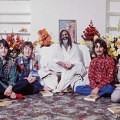
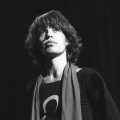


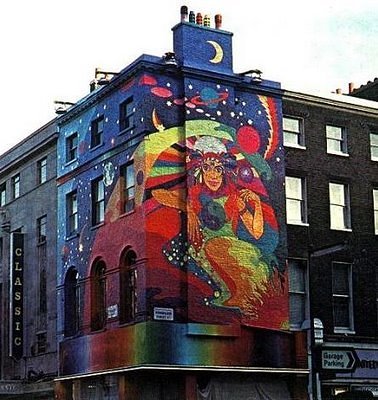

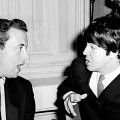

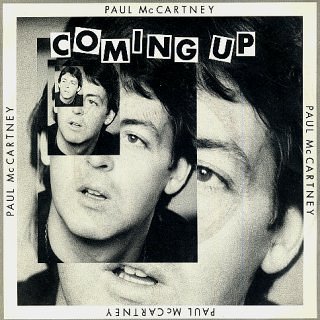

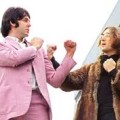
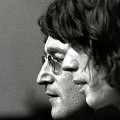
I’d say, Michael, you should arrange a dullblog field trip there, for us all to convene. We should get away fast, before Trump ascends to the Oval Office throne.
If I could be sure to find something to eat on the entire subcontinent, @Linda S., I would do it in a heartbeat. But I’m growing stronger and stronger, so I suspect we’ll be doing that kind of thing before long!
“Excuse me, but do you have Fage 2% Greek yogurt?”
“So Lennon dissed MMY on his way out the door — is there anyone in John Lennon’s life who escaped that treatment?” Yes — Yoko. IMO because he burned so many bridges so publicly in the process of joining up with her.
.
I would love a Hey Dullblog trip to Rishikesh, especially if it’s in February or March (historically the most deeply unpleasant weather months here in Chicago).
Oh I think Evil John was coming for Yoko, too. She’d investigated divorce in 1979(?), and what Double Fantasy means is that John was coming back to himself after a long time away.
Of course John’s death was a terrible thing — beyond terrible — but at least it spared us the Worst Divorce in History. Yoko wanted more than 50%, John was fed up with exile and looking to the outside world…of course the sanest thing would’ve been a version of the accommodation they’d apparently had for a while, but I think their respective damage would’ve forced a fight, and it would’ve been bloody indeed.
The sad thing about Double Fantasy is that Yoko made sure that John wouldn’t be able to come back ON HIS OWN. She insisted that she be on the album and have half the coverage. Unless he got loose of her, she had glommed on, and good.
I can’t imagine John going after her in the same fashion as he had every other person who pissed him off, simply because he had so much to lose. For him to admit he was wrong about Yoko? Wow. Talk about eating humble pie.
Ugh, Rishikesh. I have tried to sort out what happened to John in Rishikesh SO many times. As many of you have posited, I think plain old sobriety was probably the main catalyst that drove John to reconsider so much of his life at this point. But the actual conclusions he draws in India are… mystifying.
–
Let’s start with Paul: I have read and considered many possibilities of what happened between them in Rishikesh and my current theory is that NOTHING actually happened between them. Meaning that I don’t think John made a pass at Paul (Paul has refuted this, hasn’t he?) or that he pressed Paul about their relationship in any way. Yet clearly something drastic changed for John. Prior to India, Paul and John are as close as ever (John frequently sleeping over, the notorious acid trip, etc) and John has just suggested that he and Paul and their intimates all go live on their own island (to which Paul gives a HARD PASS). That seems to suggest that John is at an emotional turning point. Meanwhile Paul arrives in Rishikesh, stays for two weeks, writes some songs (i.e. gets what HE wants) and takes off (with no concern or need for John). Paul himself still seems mystified by what happened to John in India, and is so obviously blind-sided when John kicks him to the curb. So I’m inclined to think that rather than actually talking to Paul about their relationship (which we KNOW is something they almost NEVER did), John simply watched him leave and examined his feelings in the harsh, sober light of day and thought something along the lines of “WTF am I doing?! Paul is not my damn boyfriend” and felt embarrassed and humiliated … and he burned. And Burned. AND BURNED. Until he decided he was never going to get what he wanted out of their relationship and that the only option was to end it. The next step was to straighten up and find a woman to replace Paul. The idea that John met Yoko yet fortuitously when he returned from India is a straight-up lie perpetrated by J&Y. We know that now. We know that John made a deliberate, conscious decision to start an affair with her. And we can see that he immediately engaged in a bunch of (really odd, mostly awkward) stunts to promote his heterosexuality with her. Ugh, this is making me sad, people…
@Chelsea said: “John simply watched him leave and examined his feelings in the harsh, sober light of day and thought something along the lines of “WTF am I doing?! Paul is not my damn boyfriend” and felt embarrassed and humiliated … and he burned. And Burned. AND BURNED.”
.
Very interesting theory. Still harkens back to Paul, but in an indirect way.
.
“So I’m inclined to think that rather than actually talking to Paul about their relationship (which we KNOW is something they almost NEVER did).”
.
I believe they did, and intimately. Paul has gone on record as saying that “they were each other’s intimates”. John has also said that he and Paul “knew each other on a lot of levels no-one else knows about.” This speaks to a very intense communication, in my view.
@Chelsea, I think there’s something to what you write here, but my own theory is that the intense, poorly supervised meditation in Rishikesh (eight hours at a stretch? not recommended, and especially not recommended if you’re a drug-addled English rockstar with loads of repressed trauma and anger issues) caused some sort of spiritual crisis/unprepared Kundalini awakening in John. Any number of things could’ve come to the surface for John in India — childhood trauma; repressed memories; guilt over Stu’s death; maybe even “Cor blimey, I’m in love with Paul!”
I first stumbled upon this theory when I noticed that the psychologists who coined the term “spiritual emergency” had begun by studying T.M. practitioners. To me, the physical and mental discomforts of Kundalini crisis explains his behavior over the next three years — a protracted and quite violent emotional lashing-out, balanced by heroin, which only seems to subside after Primal Scream therapy — much more succinctly than any conventional explanation. John goes to India basically the same guy he’d been for years, and returns a hot mess. This is not usual. Paul, George and Ringo do not return to England and break up their marriages, do heavier and heavier drugs, and basically look vacant and miserable until 1971. John does. Yoko isn’t John wife or friend in 1968-69 — she’s his life-raft. What’s making him so uncomfortable?
As with Lennon and drugs, noting this straight up is frowned upon, because it seems like you’re saying “stupid hippie bullshit wrecked John Lennon.” But I’m not saying that; I’m saying that spiritual practices are powerful, life-changing things and need to be treated with respect. John didn’t do this, because he assumed he knew better than every authority. That’s OK when the authority you’re rebelling against is Dick Rowe at Decca who thinks guitar groups are on their way out. It’s a different thing when you go into a thousands-of-years-old system of mind training, and treat it like Aunt Mimi.
Oh yes. I certainly am not suggesting that Paul was the only problem in John’s life at the time or the only thing on his mind. It/he was one of several big things… But I don’t have enough information to comment/theorize on the other details. But Paul is certainly more than an afterthought. John probably dumped a bunch of issues on Paul that had absolutely nothing to do with him. Like children frequently blame their parents.
This theory of mine is based on a profound, yet hard-to-define, state of physical and mental discomfort. In a state like this, you’ll lash out at anyone and anything that you think might be the cause. It’s like having sand under your skin.
It goes like this
[awful feeling inside yourself]
[looks around desperately — who/what is causing this feeling?!]
[sees Paul] or [sees a Beatles fan] or [sees Julian] or [you name it]
“You! You, Paul/fan/Julian/etc! You are the cause of my misery and I cut you out of my life completely!”
[goes and done something that calms your nervous system, like smack]
This is how John acts for three solid years. We can’t know what was causing this discomfort, but the kind of meditation he was doing, if done improperly and without training, has occasionally been known to put certain people in this temporary state.
If this is what was going on, trying to figure out why John did what he did from looking at external causes — why he was so enraged at Paul/Cynthia/MMY/etc — is impossible. It’s based on a feeling inside John, not reality.
OK, I must confess that I have no experience with transcendental meditation. It actually sounds pretty horrible to me. Perhaps I lead an unexamined life? I dunno. I like to ruminate as much as the next artist, but I prefer to be moving while I do it. It sounds like meditation is the opposite of that?
Please expand on this:
“the kind of meditation he was doing, if done improperly and without training, has occasionally been known to put certain people in this temporary state”
I must confess that I have no experience with transcendental meditation
I don’t, either, @Chelsea. But I’ve done some vipassana (a Buddhist form popularly called “insight” or “mindfulness” meditation), a few Tibetan visualization styles (which I’d like to do more of) and some Taoist forms related to my qigong practice.
—
I can’t speak directly to a mantra-based concentrative form like T.M., nor the Hindu styles that George did. But I can explain what it’s like for me, and that might illuminate what I’m getting at with my “spiritual crisis” theory. What follows is all my opinion, subject to change, based on nothing more than my experiences. Grains of salt, please, and YMMV. I am not a dharma teacher nor monk, just a guy who meditates.
—
Meditation is a group of many types of mind-training practices developed over millennia and embedded in a larger philosophical (not necessarily religious) worldview. Though the methods vary widely, the practices create certain signature mental experiences and even physical sensations; the philosophies explain those experiences, keep you focused on a larger positive intent, and encourage positive uses of what the meditation is giving you. As the practice makes you live more easily and effectively, gives you strength and clarity, you are encouraged to harness that to wholesome, ethical things.
—
I wouldn’t say meditation’s horrible, exactly the opposite, but it is really demanding, and if you don’t have a pressing need for it… I won’t say it’s a bad idea, but I will say that you will probably drop it. It takes a LOT of sustained effort, and much of the philosophy is about why you should keep trying. “What’s the point?” is something you feel a lot during meditation! My writing partner is always saying, “I should really meditate,” and I’m always saying, “Or maybe not. It’s here if you need it, but you clearly don’t need it.”
—
It’s not primarily an experience of cognition. It’s not about “figuring things out.” Nor is it “clearing the mind of all thoughts.” The mind thinks like the body breathes; not only is it pointless to try to stop thinking, it’s the opposite of the goal here. It is, simply (and not simply) to see things as they are, and express your own inherent unconditioned nature, your own harmoniousness with the rest of a seamless creation. You are both separate and part of a whole; you and not-you; alive and dead; finite and infinite. (This is where words just go pear-shaped, and I’m trying not to use jargon. “Conditioned” means something that is caused by something else.)
—
A dedicated meditation practice is a bit like reformatting your hard drive; and the philosophy around that meditation practice is like all the instructions on how to back up your data, keep your system running well, and perform regular updates — it’s like the OS. Once you begin the reformatting, you start engaging with the information, chunk by chunk.
—
—
All sorts of stuff comes up during one’s meditation practice, and it’s often quite unpleasant. Sometimes it is; sometimes it’s not. When it’s unpleasant, it’s very tempting to stop, but if you do, it sits there in your consciousness. You’re still riled up, you’re just not meditating so it can be “digested.” Incorporated into the newly formatted drive.
—
(BTW, I am hating this computer metaphor, it’s not like that at all. But it is like that, too. These are the kinds of annoying things that meditators say, and not just about meditation.)
—
Meditation is a good thing, a great thing if you need it, but it’s like medicine. It needs to be given in the right amounts, in the right way to remain helpful and healing. People with a lot of trauma can get to very uncomfortable places in their meditations. Anxiety x 1000. Depression x 1000. Feelings of unreality. Et. Cetera. Because in your reformatting, you’re basically stripping away all the distractions and other strategies that you used to get through that experience, and it comes back at you. It’s really rough, but it’s also totally standard, and so the surrounding philosophies have a lot of wisdom in them that makes it easier to get through. Because it eventually passes, if you quiet down and let it. If you take a lot of drugs to cover up, or you turn to compulsive eating or sex or whatever, it won’t pass so easily.
—
It was during one of my own phases of discomfort that I read some books about kundalini awakening, which seemed to be the only thing out there that addressed a majority of what I was going through. From kundalini awakening, I looked at something called “spiritual crisis,” which is an intense form of awakening/change which feels overwhelming and requires assistance. This term was coined by the psychiatrist Dr. Stanislav Grof.
—
This interview with Dr. Grof does a better job of explaining what’s afoot here: http://www.philborges.com/blog/2013/11/04/interview-with-stan-grof/
—
Pay special attention to the bit starting at 0:43. Sound like anybody we know?
—
Now that you’ve watched that, it should be pretty obvious that John Lennon in India was perhaps dealing with just this kind of situation; and his actions really for the rest of his life were attempts to “digest” what had come up then, and move to the next phase — but whether it was T.M. and the MMY, or Janov, or any of the things he tried in the 70s (fundamentalist religion, yoga, etc) he never had enough faith to stick with something long enough to get past the shitty crisis part. He wanted to be healed while still retaining all the parts of his ego that his brain was telling him were so essential — he wanted to benefit without changing.
—
Which is why his “seeking” resonated so strongly with the Baby Boomer generation; the Boomers were smart enough to realize that the rat race was a fraud, that the planet is sick, that things need to change — but like most of us, they resist change when it becomes uncomfortable. So Lennon post-68 became not a totem figure of realized peace and love and serenity, but a symbol of the narcissistic struggle for those things WHILE still having the best that the Western materialist lifestyle can offer. And, I think, the kudos that Lennon got for seeking-but-never-finding actively encouraged his stuckness. I mean, if you read his 1980 interviews, it’s clear that there’s only one path to Enlightenment, and that’s being married to Yoko! 🙂 Not “the supportive love of a great partner” or “finding someone to love and committing yourself wholeheartedly” or “embracing the divine feminine and merging with it” but “this woman, right here, she’s the meaning of life.” That’s the opposite of what all these paths teach; it’s somebody who listened for a while then went, “OK, OK, I got it. But what about YOUR sex life, Mr. Enlightened? Sod this, I’m going back to England.”
—
So anyway. I hope this is helpful. If he had lived, I suspect that Lennon would have eventually gotten over himself, found the right teacher and right philosophy, and been able to stick it out long enough to achieve some lasting peace. But that was highly unlikely to happen surrounded by wealth, fame and power. Would he have been able to give some or all of that up? Life is long and he was only 40.
“He wanted to be healed while still retaining all the parts of his ego that his brain was telling him were so essential — he wanted to benefit without changing.Which is why his “seeking” resonated so strongly with the Baby Boomer generation; the Boomers were smart enough to realize that the rat race was a fraud, that the planet is sick, that things need to change — but like most of us, they resist change when it becomes uncomfortable. So Lennon post-68 became not a totem figure of realized peace and love and serenity, but a symbol of the narcissistic struggle for those things WHILE still having the best that the Western materialist lifestyle can offer.”
.
That makes a LOT of sense to me, Michael. You expressed very clearly something I’ve incoherently felt about Lennon’s cultural reception as a savior figure, and why his virtual deification makes me uncomfortable. And I think made, or soon would have made, him uncomfortable as well. I hope.
“You! You, Paul/fan/Julian/etc! You are the cause of my misery and I cut you out of my life completely!”
[goes and done something that calms your nervous system, like smack]
This is how John acts for three solid years.
–
OK, having read and digested your long comment on meditation, I think I’m following you. The one thing that I can’t connect to all this is Yoko. Meaning: if John was so inside-out after India, why would he make a deliberate decision to find another girlfriend/partner? Assuming Yoko wasn’t romantic serendipity (which she wasn’t)… Was she just a convenient way to destroy his family and band at the same time? What I mean is… If I was in such a crisis state, I don’t think I would be actively looking for a new romance. (But maybe that’s just a personality difference between me and John?)
Or are you saying that… he just needed something DIFFERENT to throw all his energy/anxiety/fears/hopes/dreams into? Like, Cyn/Julian/Paul/Beatles are “old” and Yoko was “new”?
If I may butt in here: I think that to John in 1968/69 Yoko = a way to redefine himself, including shedding Cynthia and Julian in a manner that could be justified on artistic/avant grade/political grounds. His marriage to Yoko isn’t just a marriage, it’s a Public Statement about art, identity, and peace. I also think he genuinely fell for her combination of smarts and sexuality.
.
Also, one thing that strikes me about both John and Paul is that neither could stand being without a woman for long. Look at the roles May Pang and Francie Schwartz played in their lives. It’s more than just sex — they could both get sex with as many women as they wanted — it’s stability, emotional reassurance, and some level of homemaking too.
.
Finally, you’re right that being in a crisis state is exactly the wrong time to make major changes in your life, like leaving your spouse or doing things pretty much guaranteed to break up your band. But that’s also when your judgment is clouded enough that you WILL do such things. A true Catch-22.
“His marriage to Yoko isn’t just a marriage, it’s a Public Statement about art, identity, and peace.”
@Nancy, I think that’s what makes this issue so tricky for the rest of us to figure out. They had a very, very odd idea of marriage, friendship, etc.
@Chelsea, what if the crisis state you’re in is feeling all your maternal abandonment? And a woman who’s been sending you postcards and seems strong and available says, “I can take care of you. I’ll never leave you. We’re one entity.”
Then Yoko — or someone like Yoko, it didn’t really matter — seems perfect. Like salvation.
It seems to me that John and Cyn had a fairly conventional marriage of the time — man takes care of woman financially, woman raises man’s child, man screws around on woman, woman tries not to get so bored she goes out of her mind. But post-India John can’t take care of anybody; suddenly that arrangement seems totally unworkable. But this strange woman who seems totally independent, fulfills some secret fantasies, and busily begins mixing his mind up (“Julia/Ocean Child”) — that’s catnip.
The other element that I can’t puzzle out here is… what role did the Maharishi play? Why did he get so much of John’s wrath? Here’s a thought, and it’s bizarre, but let’s follow it through anyway…. Supposing Mick Jagger’s claim that MMY hit on “one of the Beatles” is correct. Let’s suppose it’s John. What happens if John is struggling hard with his sexuality at this moment… and the MMY comes along and says “Dude, c’mon, I KNOW you’re gay.” ? Would John go apoplectic? I think he would.
Bingo.
I’ve never heard that quote from Jagger, but it explains John’s rage at the Maharishi quite well. After all, look at what he did to Bob Wooler.
John couldn’t just say, “Eh, not for me/us” like Paul did. He had to wreck MMY’s credibility, just in case — which is what he did.
I’ll just add, it doesn’t even matter if John was actively thinking about his sexuality in India before that happened (if it did happen). The mere fact of being propositioned in some way would have been enough, I think, to send him off. Also, I don’t remember where I read that Jagger quote, but I can verify that somewhere, at some point, I read that as well.
Dang Michael–stop with all the interesting posts already! 🙂
.
I read your previous musings about the India adventure and John’s experience/rejection of the maharishi, and pulled this gem:
.
“Lennon was driven to enact a pattern of conversion, obsession, and disillusionment for as long as he lived.”
.
The best assessment of John’s psyche I’ve ever read, and it points to what most of us have been puzzling over with respect to John’s inexplicable anger toward Paul. When John sung “I’ve seen religion, from Jesus to Paul”, he’s clearly saying that Paul fell from grace. But why? What did Paul do, or not do, that resulted in such a galactic fall from grace in John’s eyes?
.
I turn it over to you, oh wise one. 🙂
“I’m an idiot and a dupe and nobody loves or understands me… WELL SCREW THAT!!” Rinse, repeat. Rinse, repeat. John was needy and paranoid, with well-earned abandonment issues. 🙁
Have you ever noticed how creepy and scared John’s Rishikesh songs sound? Forget the lyrics and just listen to the melody lines in Cry Baby Cry, Sexy Sadie, Bungalow Bill and Dear Prudence. They have a quality that isn’t there before or after. Like he’s trying to get to sleep in a haunted house.
“Like he’s trying to get to sleep in a haunted house.”
OMG, I love that so much.
I haven’t heard the White Album in years. For a long time all I could think of was the Manson murders (which I unfortunately know many, many details of – thanks a lot, 70’s tv-movie “Helter Skelter!”) It really is the stuff of nightmares.
.
I’d say, Michael, you should arrange a dullblog field trip there, for us all to convene.
.
I’ll go, but I may need to leave early.
I’ll pack you extra beans
Let’s not leave out John’s suicidal feelings in India. About “I’m So Tired” he says, “I couldn’t sleep, I’m meditating all day and I couldn’t sleep at night”, and of Yer Blues he says “The same thing: up there trying to reach God and feeling suicidal”.
.
Suffering insomnia, “going insane” and feeling so suicidal he even hated his rock ‘n’ roll. Was John seriously contemplating ending his life in Rishikesh?
As a mental health professional, my hypothesis is that John suffered from depression or, more likely, bipolar disorder, which he had been self-medicating most of his life. In India, away from drugs and drink, his symptoms would kick in big-time, exacerbated by the sense of ennui he had been experiencing in his life at that time.
I just want to reiterate: all this is making me sad. Thanks, @Michael for the thorough post on meditation. It was truly educational and gave me a lot of food for thought! Unfortunately, I can’t sit in John’s headspace very long… it’s so, so uncomfortable in there. Julian? I can’t even… I just can’t.
.
Oh I think Evil John was coming for Yoko, too. She’d investigated divorce in 1979(?)…
.
My God, there would have been nothing left of him standing. She would have destroyed him… his estate, his reputation… It would have been a blood bath.
.
She would have testified in court that he was a hitter. There goes his peace and love reputation. Then she would have testified that he was gay. There goes his carefully-constructed macho Liverpool Rock&Roll image. Then she would have attached to all present and future earnings. And good luck seeing John’s “Beautiful Boy” (Sean on visitation day: “Do I have to see that bad man?”)
.
Yoko never did anything half way. If a fight was inevitable, she would have fought to win. And the “men from the press” would have made a non-dead, non-sainted John their squeak toy.
Yes, but he could’ve given as good as he got, and he was Beatle John, and she wasn’t. I don’t think they ever, ever, EVER would’ve let it get to court. I think they would’ve split the assets in some undisclosed way, and spun it as “Yoko needs her freedom, and I, uber-feminist John, must give it to her. But Sean will always keep us together.” And in that Kramer Vs. Kramer era, with all the ill-considered couplings of the 60s and 70s turning into divorces, as ever John would have come out smelling like a rose.
Your alternate universe is a nicer place than mine.
Perhaps, but I also think that what was happening in 1980 was John was finally fed up.
I seem to recall some author surmising that the reason that Yoko didn’t divorce John in 1979 was that she wanted more than 50%, and the lawyer told her that was never gonna happen. A split was in the wind — and if you think that, DF becomes a very different thing; not a celebration of ongoing marital bliss, but cover for an amicable parting with faces saved all around. And a financially dinged John heading back to Paul and maybe the other two to replenish the coffers right quick.
Could he have lived on his own? Maybe so, maybe not. But I sense he was gearing up to try. Hence the trip to England, touring, etc.
@ Michael said: “Perhaps, but I also think that what was happening in 1980 was John was finally fed up.”
Can you say more about this Michael? I’ve heard that speculation before, that John and Yoko were close to splitting up in 1979/80, contrary to what DF projects.
I can’t really tell you more @Karen, except that was what my impression was, after reading Coleman, then Goldman, then John Green, then Fred Seaman in three-month period, writing in the days and reading in the nights. It was just an impression, but it was a distinct one.
I think this was the backstory to the Lennon/Jack Douglas friendship, which explains what happened later, in a way that is not adequately explained.
“I think this was the backstory to the Lennon/Jack Douglas friendship, which explains what happened later, in a way that is not adequately explained.”
…Do you mean Yoko and Douglas’ falling out? Or something a little darker, like what happened to John? This is one of those things that makes one sound like a raving nutcase (and I’m not supporting the idea, but it has crossed my mind before), but the weirdness of John’s death, in the context of the weirdness of John’s life, means to me that there shouldn’t be any angle on it that’s not worth talking about, if only to conclude, no, that checks out, nothing behind that door, at least.
It is a very dark, very sad rabbithole, @Michael. Better by far to concentrate on Lennon’s years of glory, I say.
I like that scenario; it makes me feel better than the Battle Of The Century divorce that I imagined. Saving face was important to them so maybe they would have settled things quietly. Maybe John learned something from the too-public breakup of the Beatles.
.
The title Double Fantasy becomes another bit of John’s clever wordplay if a split was in the wind. “This whole thing we’ve constructed in front of you? It’s a double fantasy.”
.
I remember reading in Goldman’s book that there was a British actress John was becoming enamored of. I don’t have the book and I don’t remember her name, but maybe she would have been part of the next chapter of his life.
I find this fascinating, and also sadder, since a Yoko-less John means that he probably would have gotten up to a lot of new, interesting things (not necessarily artistically good, or generally non-cringeworthy), including collaborating with Paul again, rather than another decade spent informing the world that Yoko is the Most Perfect Person. I think that if it happened, it would be because Yoko pulled the trigger, though. John may have been testing the waters with ideas like the tour or the trip to England, but I also just don’t see him feeling that he’s strong enough and a capable enough person to function without Mother. Even though John was compulsively driven to embrace and then reject people and ideas.
But I can pretty easily see Yoko pulling the plug. Especially with there being buzz that her tracks were more interesting and progressive than John’s on DF—it doesn’t seem like a stretch for Yoko to think, see, I’ve finally proven that I’ve got more talent than that yobo I’ve had to hitch my wagon to, and now he’s dragging me down with his simplistic, passé songs.
I think John was stronger than he appeared; I think he was laying it on particularly thick, to prepare for the Big Conversation. They’d do some political activism; do a tour where she was cheered cheered and cheered (standing next to him), and then…
And I think she knew this.
“This whole thing we’ve constructed in front of you? It’s a double fantasy.”
I like this immensely. Sounds just like Lennon to me; not only his self-amusing personality, but also his craving to put one over on an unsuspecting public. (“Tit-tit-tit”; “Ah bawakawa pousse pousse”)
.
Michael said: “Perhaps, but I also think that what was happening in 1980 was John was finally fed up.”
Can you say more about this Michael? I’ve heard that speculation before, that John and Yoko were close to splitting up in 1979/80, contrary to what DF projects.
.
I’m also curious about this. Goldman mentioned it, but was dismissed because his book was considered trash by the rock press. But the evidence is there.
.
If you told the average Beatle/John Lennon fan that John and Yoko were talking divorce, they’d be shocked and skeptical. It’s the most outrageous untold story of the 20th century (if you leave out the JFK assassination) and I wish I knew more about it.
Could this have been what John was talking about to Jack Douglas on the night of December 8th? “You know, Yoko and I aren’t gonna be together much longer.”
Anyone who dug at that story after Lennon’s murder would be considered appallingly ghoulish and meanspirited — but of course it is essential to the narrative. It could be that DF was exactly what it was touted as; only a coming back together after years of alienation, rather than an expression of uninterrupted marital bliss. It’s a shame, but we’ll surely never know.
Funny you should bring up the assassination(s), because that’s never far from my mind when discussing history/historiography/the nature of truth.
Could this have been what John was talking about to Jack Douglas on the night of December 8th? “You know, Yoko and I aren’t gonna be together much longer.”
Wow I think you may onto something there. This theory fits with what we already know, the fact that Yoko turned against Jack Douglas after DF. Maybe she knew somehow, that John had told him this?
Look at the “Milk and Honey” song titles:
.
I don’t wanna face it.
.
Sleepless night
.
I’m steppin’ out
.
I’m movin’ on
.
This is an interesting account from inside the ashram:
http://www.firstpost.com/india/meet-paul-saltzman-the-canadian-who-hung-out-with-the-beatles-at-the-rishikesh-ashram-2543352.html
That was a cute account from Saltzman. One odd part… a subheading reads “on the rlshp btwn John and Paul” but then Saltzman talks about all four Beatles, and says nothing specific about John and Paul. WTF? Nice copyediting.
Very interesting. He says he left the same day as Ringo, which is significant, I think. Since Ringo left first. So he must have missed whatever may have happened later. But it’s good to know they were all close at the beginning.